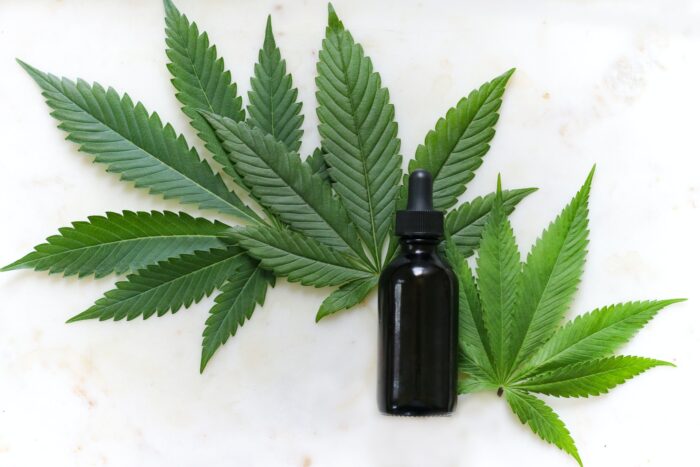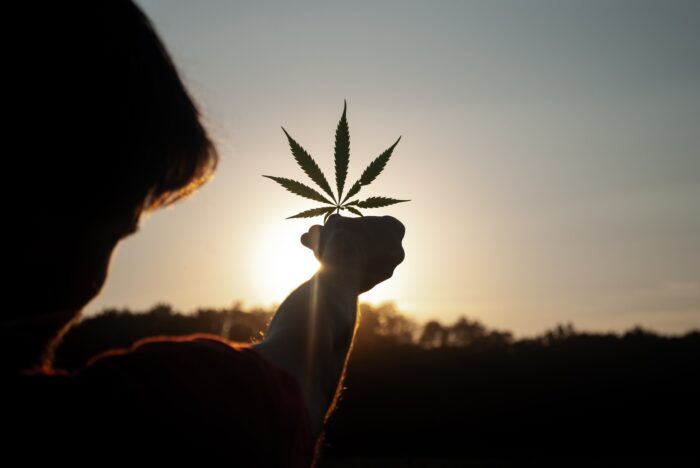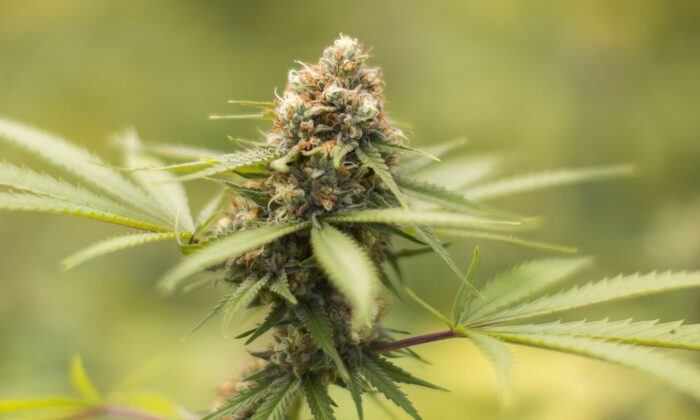
From a birds-eye-view, you would never spot the difference between hemp and marijuana. That is because they look the same, smell the same, taste the same, and even have those same sticky-icky crystalline trichomes with bulbous heads that rest on the buds. Due to both being nearly identical, how can you tell the difference and how is one distinct from the other? These are all questions that are incredibly common. Unfortunately, there is a lot of misinformation floating around the web and the answer isn’t being delivered accurately. We’re here to clear the air.
What Is Hemp?
The term “hemp” is often used to describe Cannabis that contains less than 0.3% Delta-9-THC. People often refer to it as “industrial hemp”, since it is Cannabis that is harvested for industrial use with three distinct markets, which include fiber, seed, and oil. Hemp is also a name commonly used to describe whether cannabis is non-psychoactive or not. Although Delta-8-THC can be present in hemp, in most cases, there isn’t enough of it to display any psychoactive effects. Hemp gains its popularity from being rich in CBD and its non-psychoactive effects.
What Is Marijuana?
The term “marijuana”, however, is a different term used to describe Cannabis that contains more than 0.3% Delta-9-THC. Marijuana is often a term that is being used to describe that the cannabis variety is psychoactive.
The Difference Between Hemp and Marijuana

Although they look, smell, taste, and ultimately are the same, the amount of Delta-9-THC is what separates them or makes them different from one another. For example, if you have raw cannabis flower and it contains 0.4% Delta-9-THC, the Government classifies it as marijuana. If it has just 0.1% less of Delta-9-THC (0.3%), the Government classifies it as industrial hemp.
How they are Grown
Hemp and marijuana can be grown in the same way, however, they are harvested for different purposes. Because of this, the two often require different growing conditions. For instance, to produce female plants that have budding flowers, growers typically keep the crucial stages of the life of the plant indoors, maintaining its conditions, such as the environment, temperature, humidity, and lighting. Hemp, however, is often grown outdoors and does not require the same level of control.
There is still a lot of upkeep and attention for hemp farmers, like not letting the plants cross-pollinate to produce higher yields of Delta-9-THC. This could ruin an entire crop and cost the farmer millions of dollars. This is because hemp must remain under 0.03% of Delta 9 THC in order to produce CBD that is legal.
The Entourage Effect

The Entourage Effect is an idea that active cannabis compounds can increase or enhance activity when combined with inactive compounds. The two compounds come together synergistically in the Endocannabinoid System to increase the effects, rather than strictly relying on an isolated compound. In other words, the cannabinoids in a full spectrum hemp product (contains all cannabinoids without extraction and isolation) work together, delivering a greater effect, rather than consuming larger quantities of an isolated product to achieve the same results.
What Is The Relation With Delta 8 THC?
Although the information we have on the Entourage Effect is mostly based on combining Delta-9 THC with other cannabinoids and terpenes, you shouldn’t be surprised that Delta-8 THC works in the same way due to its similarities.
The molecular similarities between Delta-9 and Delta-8 THC show a strong relation. The two have also been known to share many of the same characteristics and effects they deliver. With this knowledge, we can assume that Delta-8 THC can also produce enhanced effects when combined in an Entourage Effect, rather than ingested as an isolate.
What Are Terpenes?
While many people are aware of the cannabinoids in the hemp plant, very few are aware of the terpenes in them. Terpenes are aromatic compounds that are found in the hemp plant, though they also exist in many other plants as well. If you were already aware of terpenes, you may associate them with the cannabis plant, however, because the cannabis plant contains much higher concentrations of terpenes compared to others.
The aromatic oils of terpenes are the cause of different scents and flavors in a variety of hemp strains. For instance, the Cali Orange Kush strain utilizes a terpene profile that delivers the smell and taste of orange and citrus. The Sunset Sherbet Premium by Delta Effex on the other hand, provides a sweet berry and candy-like Indica blend, which the terpene profile is to thank for that.
Different Types of Terpenes
There are as many as 20,000 terpenes that exist, and the hemp plant produces more than 100 of them. Some of the most common terpenes in cannabis is Myrcene, Limonene, Linalool, Caryophyllene, Eucalyptol, Alpha-Bisabolol, Trans-Nerolidol, Humulene, Camphene, Terpineol, Alpha & Beta-Pinene, and many more.
Some of them have citrus, apple, and woody notes to name a few, and are often found in some of the industry’s most iconic strains, such as Skywalker OG (rich in nerolidol) and Strawberry Cough (contains Pinene). Researchers have also found that terpenes not only help with both the smell and taste of hemp, but it also plays a vital role by offering various medical benefits.
How Delta-8 THC Works Better With Terpenes

Delta-8 THC works better with terpenes because the terpenes can be used to enhance Delta-8 or even counteract some of its flaws. To give you a clear example the Grand Daddy Purple strain uses myrcene, caryophyllene, and pinene, which may help exhibit better sleep (due to myrcene), while also reducing pain and inflammation (due to both THC and caryophyllene).
To go further in-depth of these terpenes and how Delta-8 THC works better with them, one example included in a review by Dr. Ethan Russo (neurologist and pharmacologist who studies cannabis compounds) titled “Taming THC: potential cannabis synergy and phytocannabinoid-terpenoid entourage effects” shared that Pinene helps counteract compromised memory caused by THC. And there are many more terpenes that can be combined with Delta-8 THC to enhance its effects and boost its powerful benefits.








